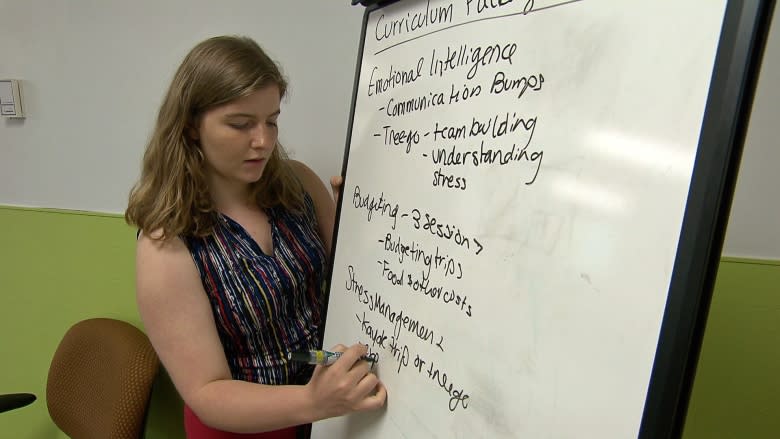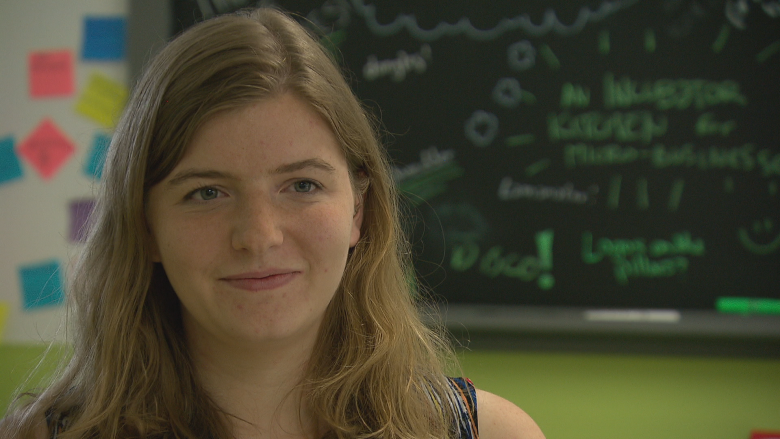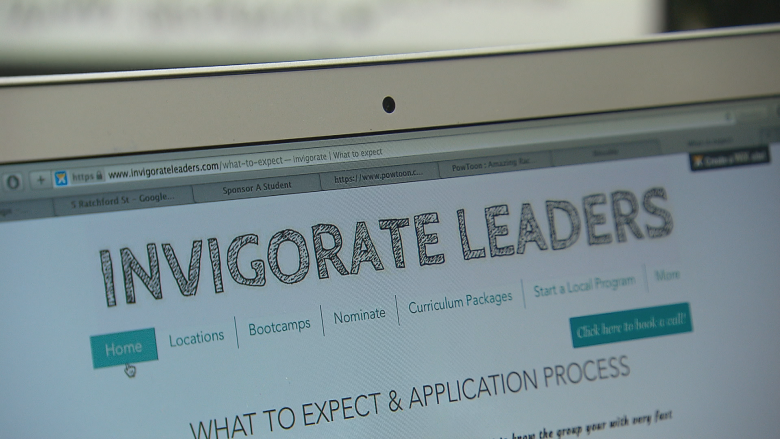Psychology student's camp tries to turn teens into leaders, quickly
Rachel Mathis quit the job she loved at a gymnastics company in Fredericton to open her own summer business: a leadership boot camp for teenagers.
The first day of summer camp, Mathis, a psychology student at Mount Allison University, stared blankly at the eight teenagers from Fredericton who sat before her. They looked at her with big eyes and shy faces that mimicked exactly how she felt.
But soon enough, these eight kids became "close like family" and the pilot project she ran two years ago turned into Invigorate Leaders, a one-week leadership summer camp hosted in two or three cities throughout the Maritimes and also, her full-time job.
Mathis became a part-time student this past school year to design the camp with mentorship from leaders at the Pond Deshpande Centre at the University of New Brunswick and studies from her psychology major. She also hired an employee who will help her at the camp.
- Students' robot takes a puzzle approach to productivity
- A ruff ride: UNB student opens dog taxi in Fredericton
The camp is designed to help future Grade 10 students with their leadership skills through workshops held during the five days of the day camp.
The third-year student chose this age group because "Grade 9 is a tricky year."
"If you are a young leader you would've spent your whole middle school career building rapport with teachers and administration. ... Then you go to Grade 10 and you go to the bottom of the pool again."
Camps in 3 towns
This year, camps will take place in Amherst, N.S., the first week of July, in Sussex halfway through July and in Moncton in mid-August.
Mathis said she wants to include smaller towns such as Amherst in her agenda because there aren't many leadership programs available there.
For each summer camp, up to eight students are enrolled.
"We like to have small intimate groups, so students can get to know each other really well," Mathis said.
"We reach out to teachers, coaches and community leaders to nominate students in their community who they feel are young leaders that can benefit from the program."
Begin with interviews
Students then apply and are called in for interviews, where their ability to open up and share their stories is evaluated.
"We want to make sure there is enough diversity in the program to learn from each other," said Mathis.
After the camp participants are chosen, the location of the camp is decided based on a buildings accessibility to the teenagers. Usually the camps are held in community buildings.
Every teenager accepted has to pay a fee of $600.
"We have a scholarship fund for students who aren't able to pay the fee," Mathis said.
Throughout the week, students volunteer in activities around the town or city, such as the local community garden. They also listen to speakers, tour organizations to see different forms of leadership and participate in workshops.
Some workshops are aimed at reading facial expressions and body language, which Mathis said is essential for high quality team work.
By the end of the week, students decide on a community project they will continue to work on after the camp is done.
In one week, students' leadership confidence is boosted by 30 per cent, according to a survey done at the start and end of the camp.
Mathis's plan for next year is to host the summer camp in more cities.
"I can just feel chills when I imagine what that could do to students if it was all across the Maritimes."




